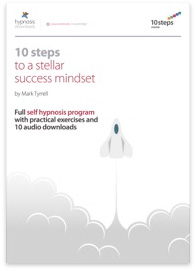How to Achieve Your Goals with Less Stress
5 easy stress management techniques

"If you are distressed by anything external, the pain is not due to the thing itself, but to your estimate of it, and this you have the power to revoke at any moment." ~ Marcus Aurelius
Stress is a killer.
I don't just mean literally. Stress slowly murders your enjoyment of life.
When you don't enjoy sitting and sipping a coffee because your mind is frantically plotting all the things you need to get done that day.
When you can't sleep at night because you're mentally kicking yourself for not having worked on your business idea in weeks.
But there are ways to manage your stress so well that everything gets done - and gives you the free time and passion to work on your success.
Overwhelmed Angela
Let's take a friend of mine, a woman I'll call Angela.
A working mom with two young kids, a busy husband, a demanding dog, plus two aging parents who live nearby and need a lot of help.
That means she has six critical relationships just in her immediate family (of course, the dog is also family), that's not to mention her colleagues at work, and her friends - some of whom feel needier than newborns to Angela.
Big surprise, Angela often feels overwhelmed. But Angela wants to thrive not just survive. Angela, you see, has plans and they're not weedy little half baked ones either.
To be or not to be (successful)
You see Angela is on a mission. She has found a new cost effective and ecological way to produce healthy baby food for less cost than other infant foods on the market .
She has managed amid the mayhem of her life, to get financial backing to develop her ethical and potentially profitable business. Angela had sourced food more cheaply so would provide a cheaper product than the current big baby food players. No additives and organic all the way.
But the business has stalled.
She doesn't even have a website, time is scarce, she has no spare capacity and feels way too stressed to focus on bringing her unique, healthy product to market to in a way that will ensure its success.
Despite being swept along on a white water ride of demands amidst all this overwhelm Angela craved some success. It's not that being a valued wife, daughter and mother doesn't make her feel happy. It does.
But when you know you can do so much more it's frustrating not to do more. It was clear to me that Angela had to develop spare capacity in herself and in her life to have room to build her dreams. How Angela managed the stress in her life can help you too. But firstly, what even is stress?
Know what stress is
The brain's main function is survival and its biggest asset is a fight-flight response that kicks into a gear within 100 milliseconds of the perception of threat.
This reflexive response ensured Man's survival. It enabled us to run from predators like a bear, a lion or even some unruly primates.
But the key word here is perception, as in the perception of threat.
Marcus Aurelius recognized that once Man stopped being chased by lions and bears, he would find other things to worry about.
Things that weren't physical threats, like deadlines and expectations, time pressures and simply too much to do. Just ask Angela and the millions of people dealing with the same pressures. Angela had her own 'wolves' chasing her down each day and she needed to tame them.
So, in these days of perpetual connectedness, blurred lines between work and non-work, a mountain of expectations, how do you achieve your goals without losing your mind?
Here are five ways to ensure you can achieve your goals with less stress (and let's use Angela as an example)
1) Prioritize and Do the Worst First
Not all goals are created equal.
If you're not careful, you can find yourself stressing over unimportant activities. Don't perspire over the little things.
It's important to have big picture priorities -- your life goals. It's also important to have daily priorities -- what is important today. There's one exception to the daily priority rule.
Most people will avoid doing the most unpleasant activity on their daily list. If you do that, it tends to gnaw away at you and deplete energy throughout the day.
Got something stressful to do today? Do it first.
Angela example: Angela realized she would 'find' other jobs to do when she was supposed to be working on her business's website (a task she hates). Now she makes sure she spends an hour a day on her business every morning from 9 to 10. And the first task is always a mandatory 15 mins on the website!
2) Be Realistic About Time
In today's digital world, you can stressfully work 24/7, so being wired can leave you tired.
It's easy to fall into the trap of extending the workday but that can make you quickly feel out of control. Moreover, many people have a distorted idea of how long it takes them to do even some of the most basic chores.
had a client who estimated that it took him about 20 minutes to get himself ready in the morning. It actually took him 35 minutes, which meant he was already feeling rushed and out of control before the day had barely got going.
When planning your time, be realistic about the amount of time it will take, and what activities will inevitably be preempted by extending the workday.
Angela example: Angela timed her usual activities over the course of a week so that she knew how much 'spare time' she had each day. That way she could properly organize her life and stop rushing around.
3) Multi-Tasking is a Waste of Time
One way people try to make up for overloading themselves is to convince themselves that they can do more than one thing at a time.
You can't.
The brain can only focus on one thing at a time, so the best you can do is rapid task-switching, i.e., do one task then rapidly move on to the next, then to the next, then back to the first one.
The problem is that for most people, task-switching is inefficient. The effort, energy and attention needed to keep three metaphorical plates spinning is more than moving through each task one at a time.
Angela example: Angela has decided to work on her business between 9 and 10 and do nothing else instead - not even check her email. That way she won't feel guilty for not working on it at other times, and can get so much more done with 7 focused hours a week instead of stolen minutes here and there.
4) Just Say No
Another time stealer/stress inducer is the habit of agreeing to take on tasks when doing so detrimentally impacts your own schedule.
There are some people who go around collecting obligations as if they were souvenirs.
One simple tip can stop a lot of this particular aggravation: When someone asks you to accept a responsibility, wait twenty-four hours before agreeing to take it on. That will give you a chance to seriously consider the impact of accepting the responsibility.
Angela example: Angela began to demand people take her need for her own time more seriously. She stopped doing everything and got her family to help out more. This freed up 7 extra hours a week to focus on her fledgling baby food business.
5) Find Balance
Balance isn't overloading yourself, working until you're exhausted, and then grabbing a few minutes to vegetate.
If you are working hard and spending a lot of time in a very focused, concentrated and information processing state, it's essential that you intersperse periods of calm relaxation.
In other words, you have to actively pursue relaxation.
Crashing isn't relaxation. Falling asleep on your computer keyboard isn't relaxation. Watching TV while finishing that assignment isn't relaxation.
You need to take time to decompress with activities like yoga, meditation, self hypnosis, even exercise. Without appropriate relaxation time there's a real risk of burning out. Even Marcus Aurelius knew that all work and no play made Caesar not just a dull emperor but a dulled one, too.
Angela example: Anglea used to blow off her biweekly yoga class all the time - if a friend needed her, because the house looked messy, or because she simply forgot to go.
Now she attends with religious devotion because she knows how much better that regular deep relaxation makes her feel. She also makes sure she has a warm bath at the end of a stressful day, with her favourite relaxation track playing in the background.
Pretty quickly, my friend Angela recognized the inherent limitations of her situation. She established her priorities and came to an important realization. "I can have it all," she told me once, "Maybe, I just can't have it all at the same time." Her home life feels much easier now - and her business is starting to fulfill its possibilities, bringing a welcome wider success into her life.
If you'd like to learn a little more about hypnosis for stress management, see our stress section here.
10 Steps to a Stellar Success Mindset course
Let hypnosis drive success habits deep into your unconscious mind...






